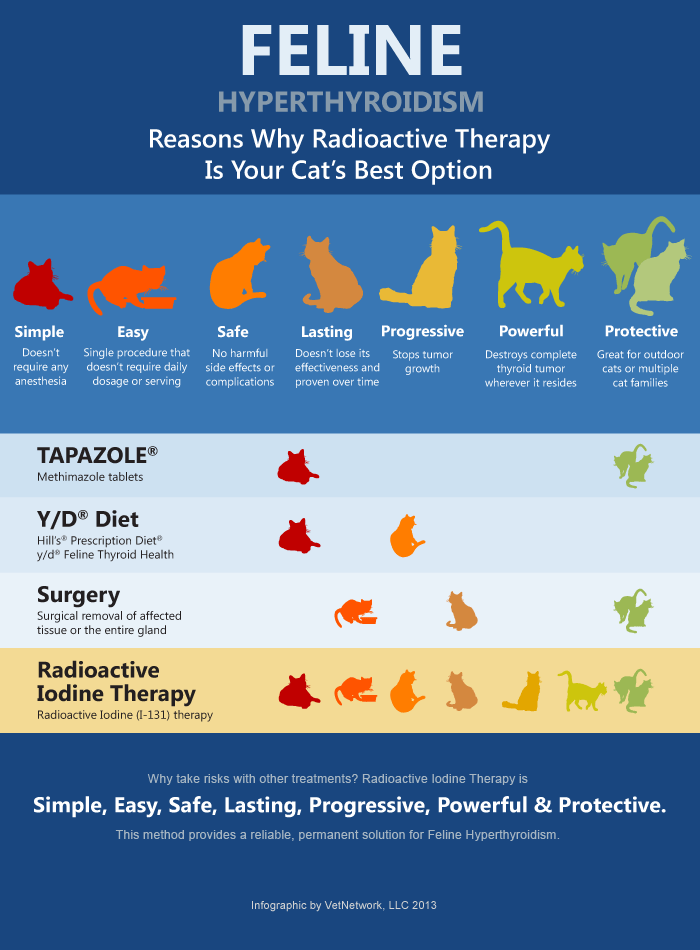Feline Hyperthyroidism Treatment Options: A Comparision
There are several treatment options for cats who suffer from feline hyperthyroidism. Each option has both advantages and disadvantages. A comparison of these will help you choose the right remedy for your pet.
Medical Treatment
One traditional treatment option is the oral administration of antithyroid medication. The most common drug is Methimazole (brand name Tapazole) and it is highly effective in correcting hyperthyroidism in cats. However, side effects arise in 15-20% of treated cats and include loss of appetite, vomiting, lethargy, blood clotting problems and blood cell abnormalities. Administration of this medication is required for the life of the cat, which can be a deterrent for an owner whose cat is difficult to medicate.
Dietary Treatment
Recently, the Hill's company introduced a new diet called Hill's Prescription Diet y/d Feline Thyroid Health. The diet is very iodine restricted. Iodine is necessary for the synthesis of thyroid hormone and so by depriving the cat of iodine, the thyroid cannot produce excessive amounts of thyroid hormone, and the condition comes under control. A caveat is that a cat on this diet can only eat Hill's y/d. No other food can be eaten - no treats, no other brand food, and no people food.
Surgical Treatment
Surgical removal of the thyroid gland provides a third treatment option. While the surgery is relatively easy and removes the thyroid adenoma (the benign tumor responsible for the condition), anesthesia can prove difficult for older cats. Surgery is also a costly solution, however, in the end, it may prove less costly than years of oral medication and blood work checkups.
RadioIodine Therapy
A final treatment option rests with radioactive iodine therapy - a preferable and sophisticated treatment option. Radioactive iodine is given by injection and irradiates and destroys the hyperfunctioning tissue. Only one treatment is needed, no anesthesia or surgery is required, and it is almost always results in a cure. Disadvantages include an elongated stay in the treatment facility and radioiodine therapy can be costly.
